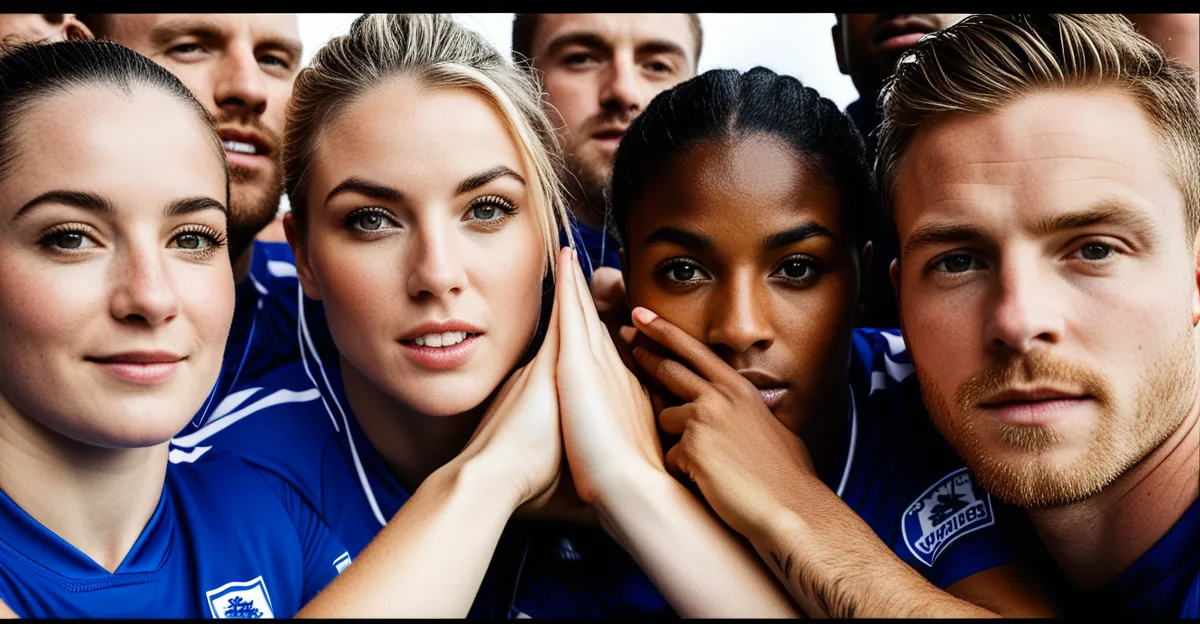Strategies Used by UK Sports Teams to Foster Diversity and Inclusion
Promoting diversity and inclusion strategies within UK sports requires robust foundational policies and formal commitments. Many sports organizations establish clear frameworks that prioritize equality and fairness, setting the tone at all levels—from leadership to grassroots participants. These formal commitments often define the organization’s values and provide a roadmap for promoting equality on and off the field.
Partnerships play a vital role in enhancing these strategies. UK sports teams frequently collaborate with organizations that advocate for underrepresented communities. These partnerships extend reach and effectiveness by connecting teams to expertise, resources, and networks focused on championing inclusivity. By working alongside such groups, teams can implement meaningful initiatives that address specific barriers faced by marginalized athletes.
Topic to read : What Role Does Nutrition Play in the Success of UK Athletes?
Another essential component is the appointment of diversity officers or dedicated inclusion staff within sports organizations. These individuals drive diversity and inclusion strategies forward by ensuring initiatives are embedded in everyday operations. They oversee programs, track progress, and foster an inclusive environment through education and support. Having such dedicated roles signals a serious, ongoing commitment to equity, providing accountability and expert guidance on sensitive matters.
Together, formal policies, strategic partnerships, and dedicated personnel create a comprehensive approach to fostering inclusion. These combined efforts help UK sports teams build environments where all athletes, staff, and supporters feel valued and empowered to participate.
Topic to read : What Are the Unique Challenges Facing Female Athletes in UK Sports Today?
Programs and Initiatives Targeting Underrepresented Groups
UK sports teams actively invest in grassroots programs to improve access and participation among underrepresented communities. These diversity programs UK focus on removing barriers for young athletes from minority ethnic backgrounds, lower socio-economic groups, and other marginalized sectors. By engaging local communities through outreach activities and development schemes, teams create pathways that foster inclusion from an early age.
Increasing female representation is a key objective within these initiatives. Programs targeting girls and women provide not only opportunities to play but also leadership training and mentorship. Such initiatives respond to historical gender imbalances, promoting equality and empowering female athletes to thrive in traditionally male-dominated sports environments.
Support for LGBTQ+ athletes and individuals with disabilities is another crucial focus. Dedicated programs ensure these groups receive tailored support, from inclusive policies to adaptive equipment and safe spaces. These efforts enhance accessibility in sports and underline UK sports’ commitment to embracing all athletes regardless of background or ability.
Together, these programs and initiatives serve as practical tools in advancing diversity and inclusion strategies by addressing specific needs within underrepresented groups, ensuring UK sports become more welcoming, representative, and equitable.
Training, Education, and Awareness Efforts
Promoting diversity and inclusion strategies in UK sports relies heavily on comprehensive anti-discrimination training and ongoing diversity workshops. Regular training sessions aim to educate both staff and athletes about unconscious bias, microaggressions, and inclusive behaviours, fostering an environment where respect is fundamental. These sessions raise awareness about subtle forms of discrimination that can otherwise undermine team cohesion and fairness.
Such training is often tailored to the unique contexts of different sports, ensuring relevance and practical application. Workshops focus not only on recognising discrimination but also on using inclusive language and demonstrating behaviours that support all participants. This proactive approach helps embed promoting equality into everyday team culture, reinforcing the commitment of organizations to diversity.
Additionally, many UK sports organizations implement measurement and feedback mechanisms. These allow teams to assess the effectiveness of training programs continuously and adjust content based on participant feedback and observed outcomes. Monitoring progress encourages accountability and helps maintain momentum in promoting inclusion, ensuring that educational initiatives translate into real-world improvements in team environments.
Challenges and Ongoing Barriers
Despite substantial efforts in diversity and inclusion strategies, UK sports still face significant barriers to inclusion that hinder progress. Persistent issues such as racism, sexism, and ableism remain deeply entrenched in many sports environments. These challenges affect not only athletes but also coaching staff and leadership roles, often limiting opportunities for underrepresented groups to advance or fully participate.
Structural barriers play a major role in slowing progress. These include longstanding institutional practices and cultural norms that resist change or maintain inequalities. For example, recruitment and selection processes may unintentionally favour certain demographics, while organizational cultures sometimes fail to challenge discriminatory attitudes firmly. Addressing such embedded issues requires consistent effort and a willingness to examine and reform established systems.
Another ongoing challenge is overcoming resistance—both overt and subtle—from individuals or groups uncomfortable with diversity initiatives. Resistance can manifest as denial of problems, reluctance to engage in training, or passive undermining of inclusion policies. Tackling this requires strong leadership, clear accountability mechanisms, and transparent communication highlighting the benefits of diversity for all members of sports teams.
To navigate these complexities, UK sports organizations employ multiple strategies, including enhanced education, robust reporting on diversity targets, and engagement with affected communities. These combined approaches aim to create environments where barriers diminish and equitable participation becomes the norm rather than the exception.
High-Profile Examples and Case Studies
In illustrating effective diversity and inclusion strategies, several UK sports team case studies offer valuable insights into successful practices and outcomes. A standout example is the Premier League’s No Room For Racism campaign, which addresses discrimination by raising awareness, promoting respect, and encouraging reporting of incidents. Its impact is evident through increased visibility and support for anti-racism efforts across clubs, players, and fans.
Similarly, The Football Association’s Football Leadership Diversity Code focuses on enhancing representation within leadership roles. This initiative sets clear expectations for football clubs to improve diversity among coaching staff and executives, fostering a culture that values inclusion at decision-making levels. It serves as a benchmark, encouraging teams to take measurable actions toward promoting equality.
Beyond football, case studies from rugby and Olympic sports demonstrate how targeted team initiatives effectively promote inclusiveness. These include tailored athlete development programs advancing participation from underrepresented backgrounds and leadership training enhancing pathways for women and minorities. Grassroots organizations also exemplify best practices by engaging local communities, offering accessible opportunities, and partnering with advocacy groups to build sustainable inclusion frameworks.
Such diversity success stories highlight a combination of dedicated policies, visible commitments, and practical actions that together drive meaningful cultural change within UK sports. They provide a roadmap for other teams aiming to strengthen their diversity and inclusion strategies, proving that concerted effort yields measurable progress and broader acceptance.
Tracking Progress and Measuring Impact
Tracking progress is essential for promoting equality within UK sports. Setting clear diversity targets helps organizations define measurable goals, enabling teams to focus efforts and monitor changes over time. These targets often encompass athlete recruitment, leadership representation, and participation rates from underrepresented communities, providing concrete benchmarks that drive accountability.
Monitoring inclusion involves systematic data collection on demographics and experiences of athletes and staff. Transparent reporting progress through public disclosures fosters trust and demonstrates commitment to advancing diversity and inclusion strategies. By sharing statistics on diverse representation and highlighting areas needing improvement, UK sports organizations create pressure and motivation to maintain momentum.
Measurable outcomes also inform adjustments in team initiatives and policies. For example, if data reveals persistent gaps in female participation or barriers faced by disabled athletes, tailored programs and resources can be deployed to address these issues. This feedback loop ensures that efforts remain effective and aligned with overarching inclusion goals.
Overall, tracking progress and measuring impact are crucial for sustaining lasting change, enabling UK sports teams to evaluate the effectiveness of their diversity work and refine strategies for greater equity.






